After the 1992 Earth Summit in Rio failed to produce an agreement to stop deforestation, a committed group of environmentalists, businesses, and community leaders joined to create a revolutionary market-based approach to improve forestry practices worldwide.
That was the seed of the Forest Stewardship Council (FSC), founded in 1994 as a voluntary certification for sustainable forestry, promoting environmentally sound, socially beneficial, and economically viable management of the world’s forests.
Timothy Synnott, first Executive Director of FSC International, said:
“Any number of statements have been made as to why FSC was set up, and what are, were or should have been its objectives. Many of these reflect the personal objectives or perceptions of the participants. For example, in the early years, there was a widespread perception that FSC would or should focus its attention mainly, or even exclusively, on small-scale or community-managed forests. In some sectors, there was also a perception that the objectives of FSC were incompatible with the certification of plantations, and especially of large-scale, commercial or exotic plantations, because of the well-documented negative impacts of some such projects. Several northern NGOs maintained fiercely that FSC should not approve certification of commercial logging in tropical rainforests, a policy not much supported in tropical countries. Step by step, these different perceptions and objectives have been brought together in a framework for identifying just what actions are unacceptable or acceptable in different circumstances.”
After FSC was founded, local network partner offices were set up to provide country-specific support for the global certification scheme. The first of these was the FSC UK office, founded in 1995. As we celebrate our 30th anniversary this year, we want to thank everyone who has been part of our incredible journey so we've been digging through our archives to showcase some of the key milestones from the early days of FSC and FSC UK.
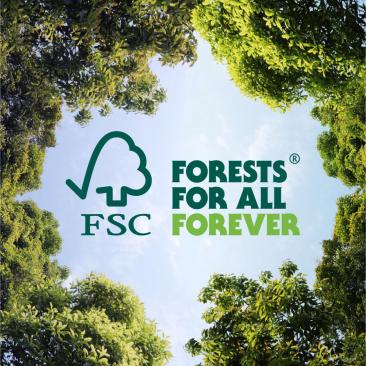
FSC UK's highlights 1995-2005
-
1995
FSC UK was FSC's first local network partner office, followed by FSC Netherlands and FSC Germany.
-
1996
The world's first FSC-labelled product went on sale, a wooden spatula, sold by Sainsbury's UK.
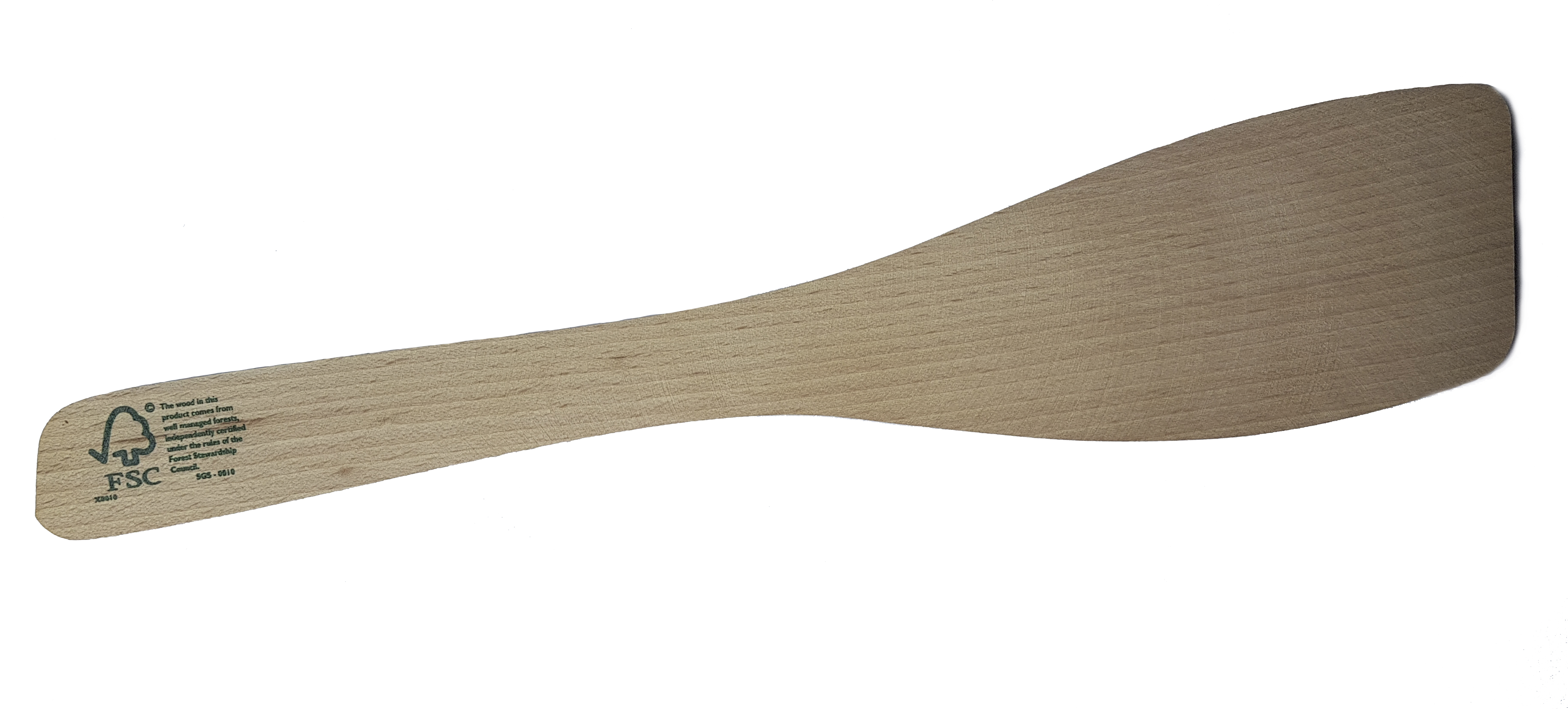
-
1997
Forest Management group certification was launched to help forest owners, and in particular owners of smaller woods, achieve FSC certification by reducing the auditing burden and costs.
-
1998
Over 10 million hectares of forests around the world were certified to FSC Standards, including 15,000 hectares of forests in the UK. This was also the year when the first book printed on FSC-certified paper was published and when the first FSC-certified paper product in the UK went on sale: wallpaper by Crown, sold by Homebase, and toilet roll, sold by Sainsbury's.
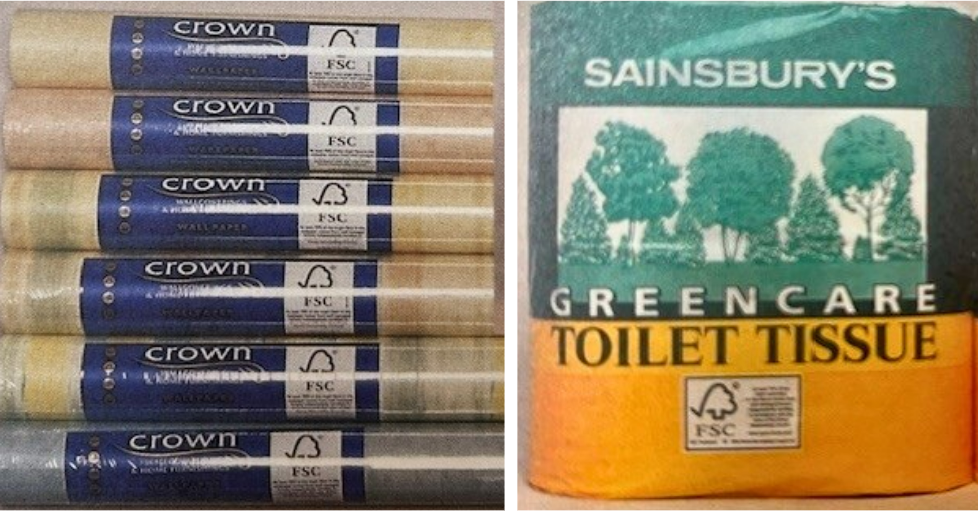
-
1999
The Forestry Commission (now Forestry England, Forestry and Land Scotland, and Natural Resources Wales) became the first state forest service to have all of its land FSC-certified, over 800,000 hectares.
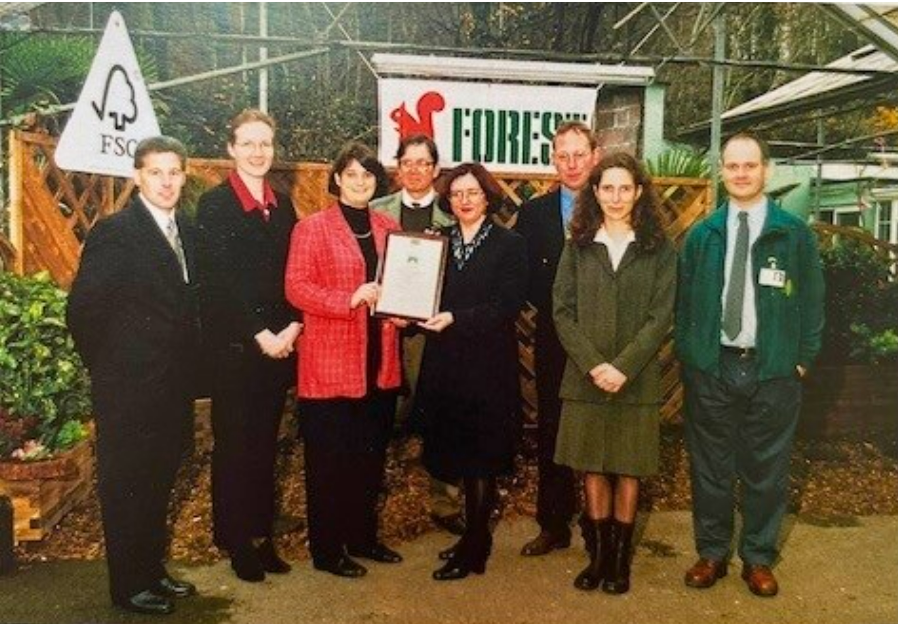
The Forestry Commission receiving their FSC Forest Management certificate from FSC UK staff -
2000
The Northern Ireland Forest Service forests and the Crown Estate forests all became FSC-certified.
The BBC Wildlife Magazine was the world's first consumer magazine to be printed on FSC-certified paper. -
2001
The National Trust achieved FSC Forest Management certification and over 1 million hectares of forests in the UK were FSC-certified.
-
2002
FSC launched Group chain of custody certification to help smaller enterprises achieve FSC certification.
-
2003
The first FSC-labelled game product, venison, hit the shelves in Sainsbury's.
-
2004
Jewson and Travis Perkins, two of the largest builder's merchants in the UK, gained FSC certification.
-
2005
Over 1.5 million hectares of forests were certified in the UK. Forest Research also found that 80% of softwood roundwood was being harvested from FSC-certified forests.
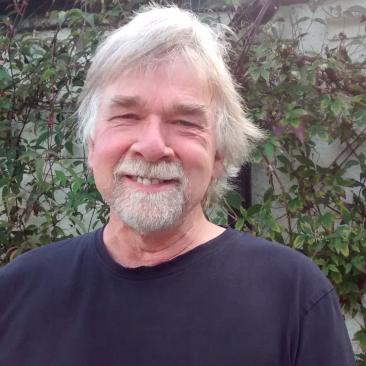
Certification can deliver the goods
Hubert Kwisthout is one of FSC UK's trustees and has been involved in FSC's work since it was no more than an idea. When asked about FSC's foundation and how it has grown over the past 30 years, he said:
"FSC is an unusual – unique even – body. At the time of its inaugural meeting in Toronto in 1993 it was not much more than an idea, although already by that time many people had been involved in developing the broad outline of the organization it was to become: international, decentralized, democratically run and led by its membership. It was also unique in the sense that it was based on the principle that sustainable forest management must be based on a compromise between three different and sometimes contradictory interests: environmental, economic, and social. As such FSC is not a trade body, nor an NGO, and does not speak for any specific interest group.
All democracies are complex and messy. They can also be cumbersome, slow, and frustrating. FSC is all these things. But in the 30+ years of its existence it has grown into a global trendsetter which has informed the debate on what responsible natural resource management actually means. And from the early days in which there was a widespread scepticism as to the feasibility of certification, FSC has demonstrated that, with the right support of public authorities, voluntary, third party certification can deliver the goods."
We'll be looking at our milestones from 2005-2015 and 2015-2025 over the coming months and hearing from those involved along the way, so keep an eye out for these in our monthly newsletter, Forest Matters.

